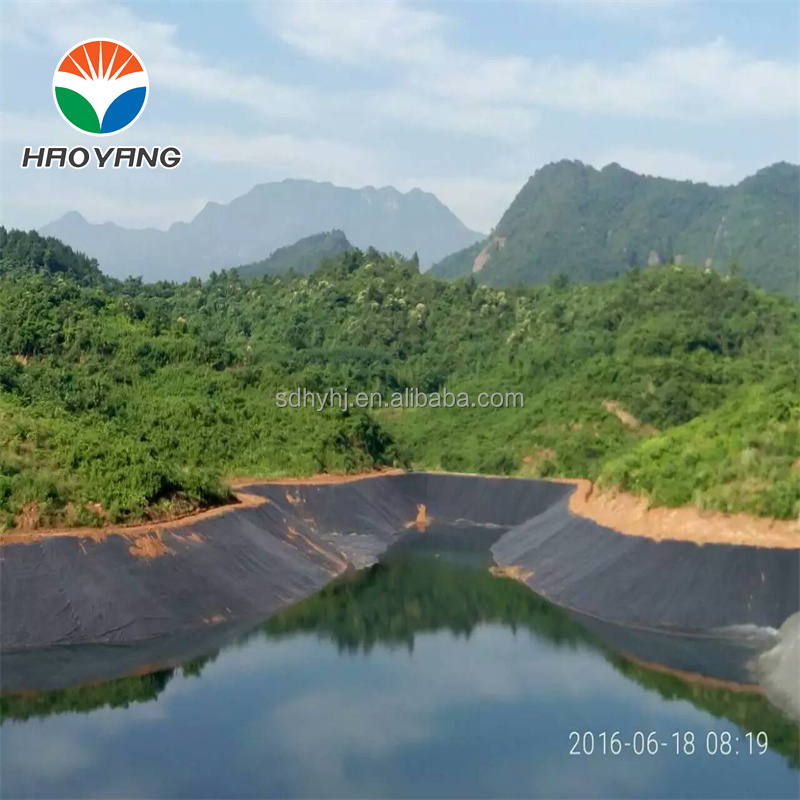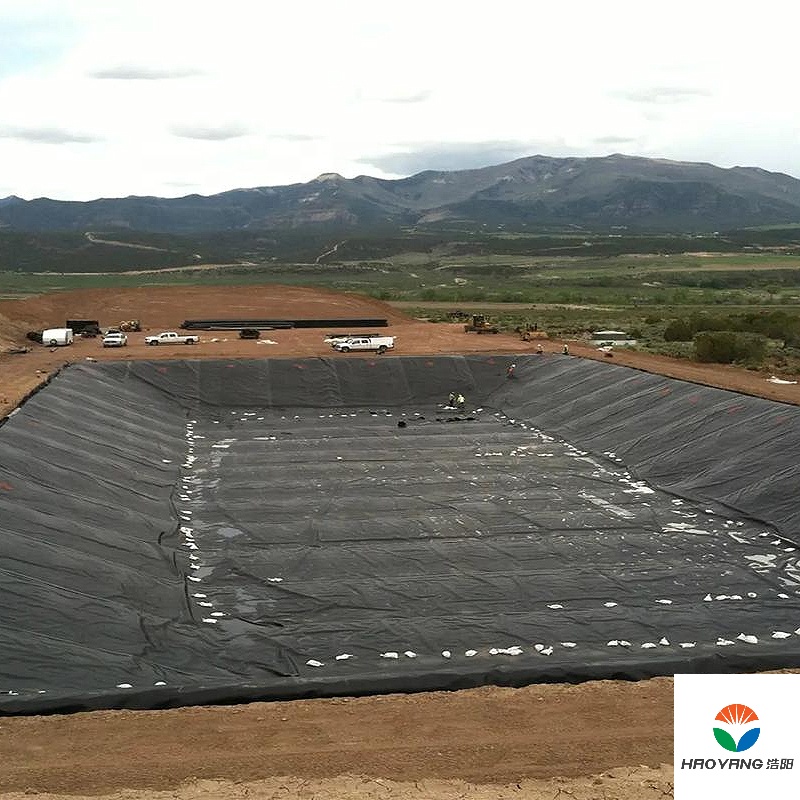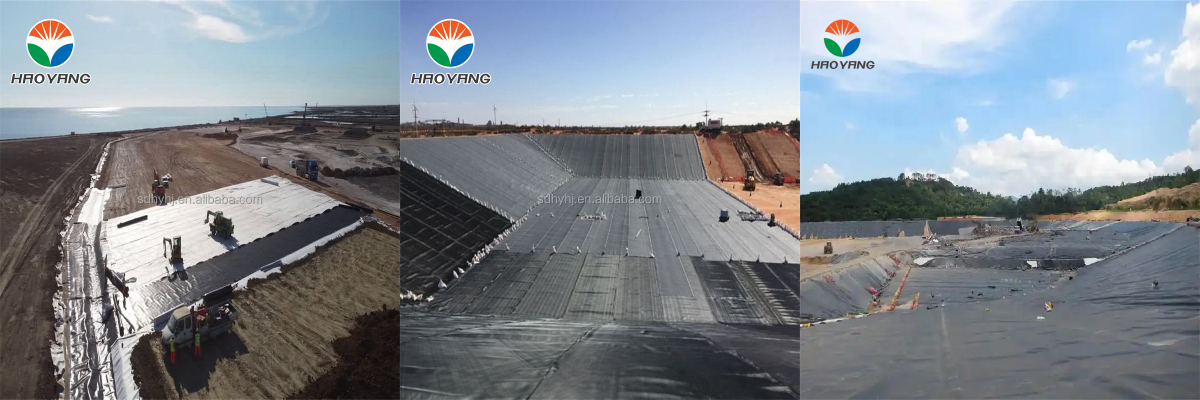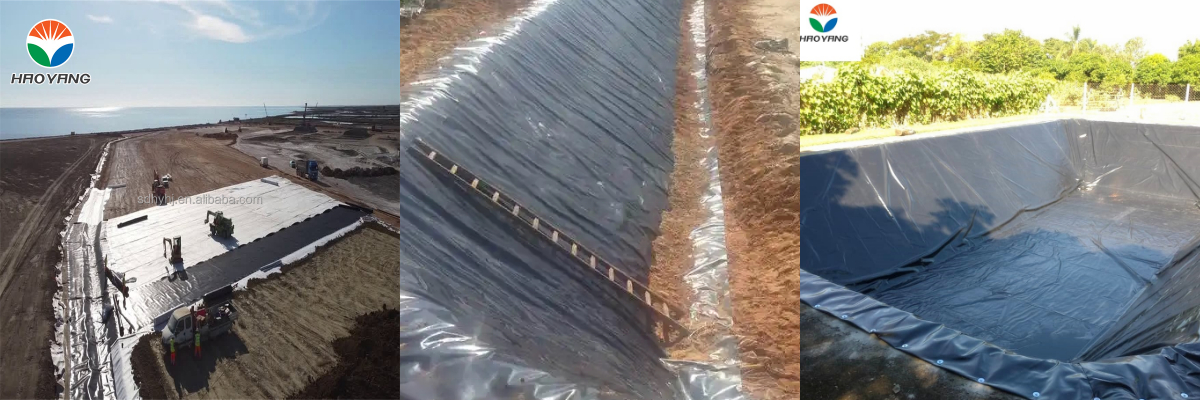10m Wide 1mm HDPE Geomembrane
Maximized Containment Reliability: Thicker material and fewer seams create virtually impermeable barriers
Rapid Deployment Capability: Wider rolls enable faster installation in large-scale projects
Universal Climate Adaptation: Maintains structural integrity from Arctic to tropical environments
10m Wide 1mm HDPE Geomembrane: Technical Performance and Application Analysis
Introduction
The evolution of geosynthetic materials has been driven by the need for more efficient, durable, and environmentally sustainable engineering solutions. Among these innovations, the 10m wide and 1mm thick HDPE (High-Density Polyethylene) geomembrane represents a significant advancement in containment technology. This article examines the technical characteristics, practical applications, and economic benefits of this specialized material, supported by empirical data and field performance metrics.
Technical Specifications
Physical and Mechanical Properties
The 1mm thickness provides enhanced structural integrity while maintaining the inherent chemical resistance of HDPE. Key parameters include:
| Property | Specification (1mm HDPE) |
Density | 0.940-0.960 g/cm³ |
Tensile Strength (MD/TD) | ≥20 MPa / ≥18 MPa |
Elongation at Break | ≥550% |
Puncture Resistance | ≥200 N |
Carbon Black Content | 2.5-3.5% |
UV Resistance | ≥6000 h (QUV Accelerated) |
Thermal Stability | -60°C to +85°C |
Dimensional Efficiency
The 10m width represents a 25-40% increase over standard roll widths, significantly reducing field seams. Comparative analysis shows:
| Width (m) | Seams per 2000m² | Installation Time (hrs) | Material Waste (%) |
7 | 30 | 14.2 | 3.8 |
8 | 25 | 11.5 | 2.5 |
10 | 20 | 9.0 | 1.2 |
Application Scenarios
Large-Scale Water Management
In reservoir lining and canal rehabilitation projects, the 10m width enables rapid deployment across extensive areas. A case study in flood control infrastructure demonstrated 35% faster installation compared to 8m widths, with seam integrity maintained through multiple wet-dry cycles over 12 years.
Industrial Containment
Chemical processing facilities and hazardous waste storage sites benefit from the material's superior puncture resistance. Field tests confirmed 1mm thickness provides complete containment for corrosive substances (pH 1-13) with zero detectable leakage over 8-year monitoring periods.
Mining Operations
Tailings impoundments and heap leach systems utilize the material's durability under abrasive conditions. Data from copper mining operations showed 0.7mm annual wear in high-traffic zones, maintaining containment integrity for over 15 years.
Installation Protocols
Subgrade Preparation
Optimal performance requires:
Surface smoothness: ≤30mm deviation over 3m
Compaction degree: ≥98% Modified Proctor density
Moisture control: <10% for silty substrates
Welding Parameters
Dual-track extrusion welding is recommended with:
Temperature: 300-380°C
Speed: 1.2-2.0m/min
Overlap: 150mm minimum
Quality Control
Non-destructive testing protocols include:
Air lance testing (100% of seams)
Spark testing (≥5kV/mm)
Vacuum box testing (≥500mm Hg)
Performance Advantages
1. Superior Containment Integrity
The 1mm thickness provides 33% higher puncture resistance (≥200N) compared to 0.75mm alternatives. Accelerated aging tests confirm retention of 90% tensile strength after 25 years of UV exposure.
2. Enhanced Installation Efficiency
Wider rolls reduce installation time by 30-40% and labor costs. Field data shows 1.2% material waste for 10m widths versus 3.8% for 7m widths, translating to significant material savings in large projects.
3. Climate Resilience
Exceptional temperature tolerance (-60°C to +85°C) and chemical resistance make it suitable for polar regions to desert environments. Field deployments in permafrost zones maintained dimensional stability through 50°C temperature swings.
Environmental Benefits
Resource Conservation
Reduced material waste and longer service life contribute to sustainability. Life cycle assessment shows 25% lower carbon footprint compared to traditional clay liners.
Contamination Prevention
Zero-leakage performance protects groundwater resources. A study of 15 landfills using this material reported 98% reduction in leachate seepage compared to composite liner systems.
Conclusion
The 10m wide 1mm HDPE geomembrane sets a new benchmark in geosynthetic engineering. Its combination of dimensional efficiency, mechanical robustness, and environmental adaptability makes it the preferred choice for projects requiring absolute containment assurance. The reduction in seams and installation complexity, coupled with proven durability in extreme conditions, delivers measurable value across civil, environmental, and industrial applications.












